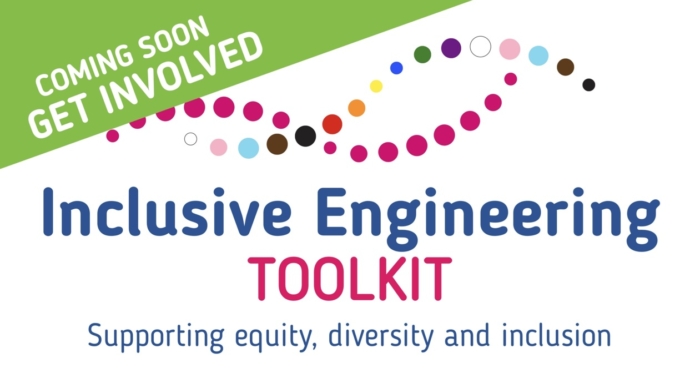For Neurodiversity Celebration Week, our own EPC student data fellow makes a compelling case for a neurodiversity-affirming approach in engineering HE.
Zoe McCready is a final year Politics and International Relations undergraduate at the University of Manchester. She studies human behaviour, culture, and social issues and has previously worked in Equality, Diversity, and Inclusion for the NHS.
The future of the engineering sector demands knowledge, skills, and mindsets that are flexible, responsive, creative, and innovative. Higher education’s approaches to teaching, learning, and the student experience directly impact the quality and quantity of the engineers of the future, who will be addressing the ever-pressing global challenges we face today. However, this is not news to the higher education sector. We all know the importance of the role of engineering in the future of the UK, its economy, and our place in a global world. Despite awareness, the supply of skills and knowledge required is not being met through our education system. Educational reform and participation initiatives have been widely discussed and success stories shared. However, still requiring attention is the role of fostering neuro-inclusivity in higher education. Higher education must enhance neuro-inclusivity by implementing evidence-based neurodiverse-affirming methods and strategies for supporting students.
The neurodiverse community are a significant source of skill, talent, and expertise many of whom hold abilities ideally suited to engineering and technology careers, but are being hindered from entering the profession through barriers to access and a lack of diversity in the sector. In order to help rectify this, universities can support neurodivergent students through their programmes by moving away from the idea that there is a ‘right’ way of thinking, learning, and behaving. The future of the STEM sector in the UK requires creative individuals: thinkers who are not only logical and analytical-minded, but can also able to bring revolutionary ideas to fruition. Encouraging our students to think differently, unconventionally, and from new perspectives, is essential for the future of the sector. To facilitate this, education should move away from any ‘one size fits all’ approaches, and enable learners to explore multiple solutions and think outside the box. Nurturing learners and instilling enthusiasm and passion in a welcoming and open environment would help support all STEM students through their education and into the workforce, helping close the skills shortage and gaps in the workforce, and unlocking vast amounts of talent and potential.
What will a neurodiversity-affirming approach look like?
A neurodiversity-affirming approach embraces the natural variation and differences in humans’ experiences, abilities, and ways in which we interact with the world. These variations are not considered deficits to be ‘fixed’, but are treated as natural. Within a neurodiversity-affirming approach, it is more widely understood and accepted that everybody is different in how they think, learn, process, and perceive information. A neurodiversity-affirming educational organisation won’t have just completed a checklist of accessibility requirements or met diversity quotas, they will have undergone an entire cultural transformation and created a learning environment where every individual feels seen, heard, and empowered.
Neurodiversity-affirmative education understands that neurodiversity is not merely a synonym for additional support needs. Instead, neuro-diversity affirmative approaches to education include and benefit everyone. Notably, these approaches will particularly benefit pupils who do not have a formal diagnosis (of which we know there are many). Neurodiversity-affirming approaches in education accept the natural variability between people and how they learn, and understand difference as a collective strength for the human race. Neurodiversity-affirmative approaches in education move away from the focus on the ‘norm’ vs ‘others’ and cater to this naturally occurring variability that is an inevitable part of humanity. For this reason, an expectation of varying needs is embedded into educational institutions that are neurodiversity-affirming, rather than treated as an add-on or additional extra. Neurodiversity-affirming education places emphasis on enabling and strengthening all individuals to cultivate their strengths, talents, and self-esteem on their own terms.
A neurodiversity-affirming approach in higher education may involve embedding innovative and holistic approaches to variability in student’s needs, rather than offering prescriptive adaptations for specific profiles. A higher education institution adopting a neurodiversity-affirming approach will most likely require a cultural shift, rather than merely concrete interventions or increased adjustments for certain students. This cultural shift will involve a transformation towards a more supportive and nurturing educational culture that creates a safe and healthy work and study environment where everyone can work and thrive.
The neurodivergent community can provide a large amount of insight into ways in which the learning experience can be shared to support both neurodivergent and neurotypical students, and craft an academic environment that more equitably caters to diversity. An institution seeking to implement neurodiversity-affirming initiatives should begin by consulting the neurodiverse community within its staff and student population from the outset of the planning and design stage. Universities have the potential to create a more welcoming community and environment by empowering neurodiverse students, raising awareness, and strengthening positive and inclusive attitudes across the institution and its staff and student population. More awareness and acceptance of neurodiversity is urgently required; neurodiverse students in higher education report feeling judged, isolated, lonely, depressed, and anxious. Misunderstanding about neurodiversity, from staff and students alike, contributes to social exclusion, lack of acceptance, and stigmatisation.
We all have a basic understanding of the importance of engineering a neurodiverse future. While it might be that it feels like only some of us may be in a position to translate this understanding into tangible action going forward, in actual fact, all of us can play a part in contributing to the formation of a neurodiversity-affirming culture within engineering. We can all help to challenge preconceptions, myths, and stereotypes. We can all make an effort to help pave the way to increased collective awareness, understanding, and acceptance. These are the first building blocks in the construction of neuro-inclusive cultures and environments, a development in which we should all be proud to be able to participate.




